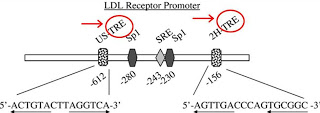New over at Mother Nature Obeyed: a post celebrating the one-year anniversary of “The Curious Case of Campbell’s Rats,” taking a look at how glutathione can prevent and reverse liver cancer, and reflecting on the role of glutathione in Campbell’s animal experiments. You can read it here: Taking a Trip Down Memory Lane, Fishing for …
The Masai Part II: A Glimpse of the Masai Diet at the Turn of the 20th Century — A Land of Milk and Honey, Bananas From Afar
The next post in my Masai series is up over at Mother Nature Obeyed:
How to Do a Proper Self-Experiment, and Why Your “N” Doesn’t Technically Equal “1”
Aravind recently suggested in the comments that I write a blog post about a discussion he and I had in the hallway at the Ancestral Health Symposium about “n=1 experiments.” The thrust of this discussion was that if you want to do a true self-experiment where you can definitively demonstrate cause and effect, you can actually conduct a …
Gary Taubes on Cherry-Picking and Paradigm Shifts (A Brief Thought on Science)
Warning: A Serious Blog Post Occurs Somewhere Below Some controversy recently erupted in the Twitter-sphere when a number of us including Dave Dixon and Dallas Hartwig were recently discussing Denise Minger’s angular hypothesis of atherosclerosis, in which she proposed that increased concentrations of serum bananas and increased concentrations of other plasma constituents with pointy ends or sharp edges penetrate the …
Fat and Diabetes — Bad Press, Good Paper, and the Reemergence of Our Good Friend Glutathione
New blog post over at Mother Nature Obeyed: Fat and Diabetes: Bad Press, Good Paper, and the Reemergence of Our Good Friend Glutathione Enjoy!

The Central Role of Thyroid Hormone in Governing LDL Receptor Activity and the Risk of Heart Disease
In “Genes, LDL-Cholesterol Levels, and the Central Role of LDL Receptor Activity in Heart Disease,” as well as my most recent presentations at Wise Traditions and AHS, I described the overwhelming genetic evidence for the theory that LDL receptor activity centrally governs the risk of heart disease and the large amount of other evidence from …